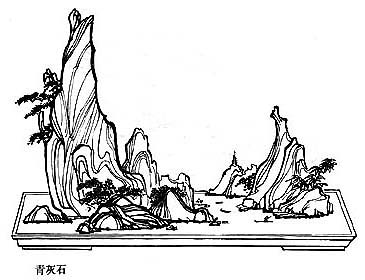詩
經
Shi Jing 
 – The Book of Odes
– The Book of Odes
The oldest collection of Chinese poetry, more than three hundred songs, odes and hymns. Tr. Legge (en) and Granet (fr, incomplete).
Shijing II. 4. (193)
| 燁 燁 震 電 不 寧 不 令 |
此 日 而 食 于 何 不 臧 |
彼 月 而 食 則 維 其 常 |
四 國 無 政 不 用 其 良 |
日 月 告 凶 不 用 其 行 |
今 此 下 民 亦 孔 之 哀 |
彼 月 而 微 此 日 而 微 |
日 有 食 之 亦 孔 之 醜 |
十 月 之 交 朔 日 辛 卯 |
十 月 之 交 |
||
| 蹶 維 趣 馬 |
棸 子 內 史 |
仲 允 膳 夫 |
家 伯 維 宰 |
番 維 司 徒 |
皇 父 卿 士 |
哀 今 之 人 胡 憯 莫 懲 |
高 岸 為 谷 深 谷 為 陵 |
百 川 沸 騰 山 冢 崒 崩 |
十 月 之 交 |
||
| 不 憖 遺 一 老 俾 守 我 王 |
擇 三 有 事 亶 侯 多 藏 |
皇 父 孔 聖 作 都 于 向 |
曰 予 不 戕 禮 則 然 矣 |
徹 我 牆 屋 田 卒 汙 萊 |
胡 為 我 作 不 即 我 謀 |
抑 此 皇 父 豈 曰 不 時 |
豔 妻 煽 方 處 |
楀 維 師 氏 |
十 月 之 交 |
||
| 天 命 不 徹 我 不 敢 傚 我 友 自 逸 |
民 莫 不 逸 我 獨 不 敢 休 |
四 方 有 羨 我 獨 居 憂 |
悠 悠 我 里 亦 孔 之 痗 |
噂 沓 背 憎 職 競 由 人 |
下 民 之 孽 匪 降 自 天 |
無 罪 無 辜 讒 口 囂 囂 |
黽 勉 從 事 不 敢 告 勞 |
擇 有 車 馬 以 居 徂 向 |
十 月 之 交 |
||
At the conjunction [of the sun and moon] in the tenth month,
On the first day of the moon, which was Xin-mao,
The sun was eclipsed,
A thing of very evil omen.
Then the moon became small,
And now the sun became small.
Henceforth the lower people,
Will be in a very deplorable case.
The sun and moon announce evil,
Not keeping to their proper paths.
All through the kingdom there is no [proper] government,
Because the good are not employed.
For the moon to be eclipsed,
Is but an ordinary matter.
Now that the sun has been eclipsed, –
How bad it is !
Grandly flashes the lightning of the thunder ; –
There is a want of rest, a want of good.
The streams all bubble up and overflow.
The crags on the hill-tops fall down.
High banks become valleys ;
Deep valleys become hills.
Alas for the men of this time !
How does [the king] not stop these things ?
Huang-fu is the president ;
Fan is the minister of instruction ;
Jia-bo is the [chief] administrator ;
Zhong-yun is the chief cook ;
Zou is the recorder of the interior ;
Jue is master of the house ;
Yu is captain of the guards ;
And the beautiful wife blazes, now in possession of her place.
This Huang-fu,
Will not acknowledge that he is acting out of season.
But why does he call us to action,
Without coming and consulting with us ?
He has removed our walls and roofs,
And our fields are all either a marsh or a moor.
He says, ' I am not injuring you ;
The laws require that thus it should be ? '
Huang-fu is very wise ;
He has built a great city for himself in Xiang.
He chose three men as his ministers,
All of them indeed of great wealth.
He could not bring himself to leave a single minister,
Who might guard our king.
He [also] selected those who had chariots and horses,
To go and reside in Xiang.'
I have exerted myself to discharge my service,
And do not dare to make a report of my toils.
Without crime or offense of any kind,
Slanderous mouths are loud against me.
[But] the calamities of the lower people,
Do not come down from Heaven.
A multitide of [fair] words, and hatred behind the back, –
The earnest, strong pursuit of this is from men.
Distant far is my village,
And my dissatisfaction is great.
In other quarters there is ease,
And I dwell here alone and sorrowful.
Every body is going into retirement,
And I alone dare not seek rest.
The ordinances of Heaven are inexplicable,
But I will not dare to follow my friends and leave my post.
Legge 193

The Book of Odes – Shi Jing II. 4. (193) – Chinese on/off – Français/English
Alias Shijing, Shi Jing, Book of Odes, Book of Songs, Classic of Odes, Classic of
Poetry, Livre des Odes, Canon des Poèmes.
The Book of Odes, The Analects, Great Learning, Doctrine of the Mean, Three-characters book, The Book of Changes, The Way and its Power, 300 Tang Poems, The Art of War, Thirty-Six Strategies
Welcome, help, notes, introduction, table.
Index – Contact – Top
